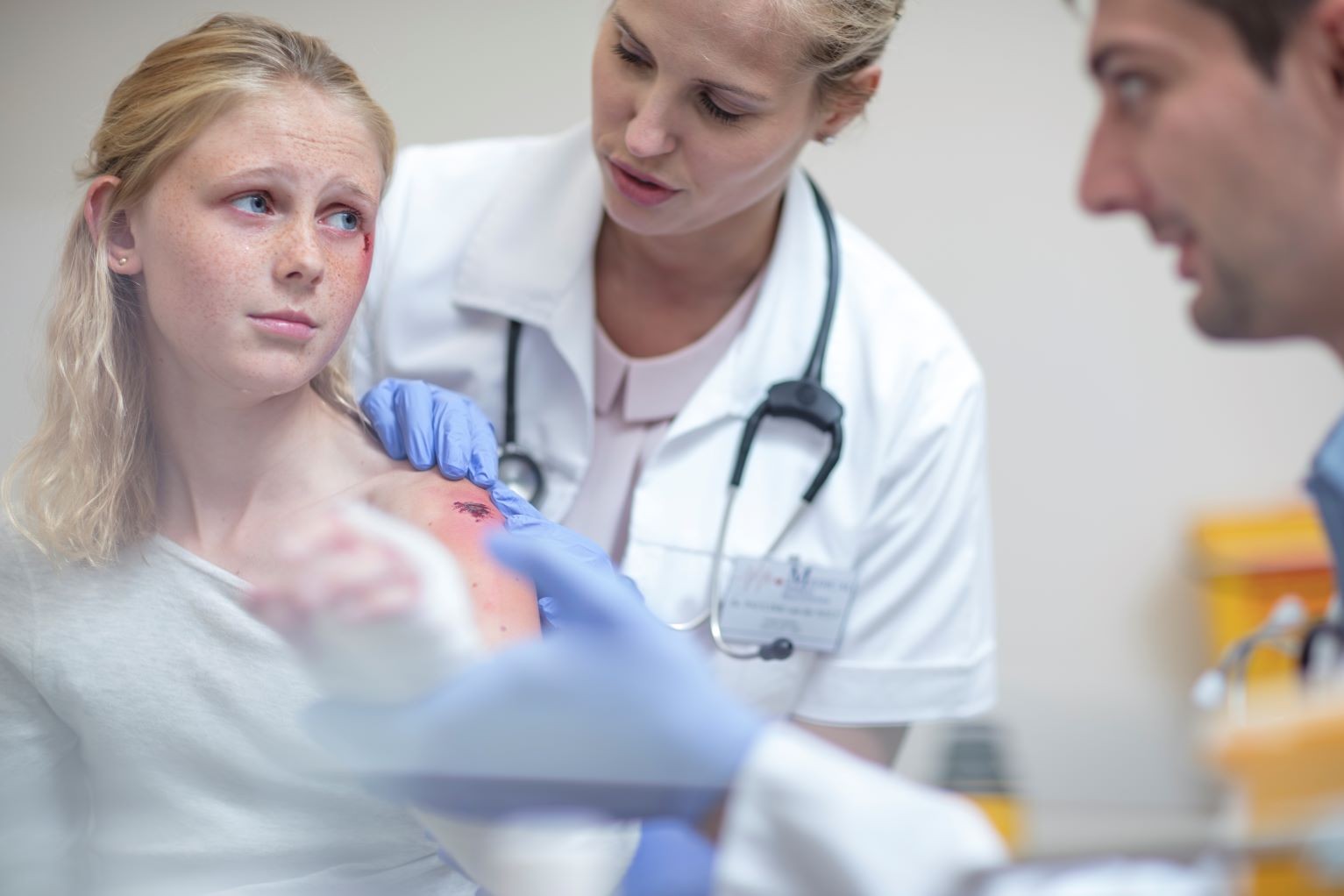UNSW receives $10.2m to improve primary care
2025-02-17T11:29:00+11:00

Primary health care is the first point of contact within the healthcare system.
Image: Adobe Stock
The three projects will look at testing new and innovative models of care, evaluating health care for aged care residents and using data to improve patient experience.
The federal government’s Medical Research Future Fund (MRFF) has awarded three UNSW-led projects over $10 million to bolster Australia’s primary health care systems, by making them more accessible, affordable and equitable.
Primary health care includes GPs and other healthcare service providers and is usually a patient’s first point of contact.
“Doing this research today means we are keeping up with improvements in technology and a changing world. It means an Australian health care system that will continue to be the gold standard across the world,” the Minister for Health and Aged Care, Mark Butler, said.
UNSW Dean of Medicine & Health Professor Cheryl Jones congratulated the three UNSW recipients of the MRFF Multidisciplinary Models of Primary Care grants.
“Research focussed on primary and community care systems such as these examples are so important. Australia has one of the best health systems in the world, but we need to understand how to better integrate the patient journal, ultimately improving the health care provided to the community,” Prof. Jones said.
The UNSW projects include:
National consortium to design and test models of care
Professor Michael Kidd, Director of the International Centre for Future Health Systems at UNSW, was awarded $5.2 million to lead the establishment of one of the largest research collaborations in Australia focused on improving primary care.
The National Multidisciplinary Primary Care Research, Policy and Advocacy Consortium will involve 100 primary care researchers from 20 universities across the country. Researchers will work in tandem with consumers, government entities and expert partners to design and test new models of health service delivery to better meet Australians’ healthcare needs.
Prof. Kidd said the consortium would be a major national resource supporting ongoing federal, state and territory healthcare reform programs.
“It will strengthen the evidence base on primary care service delivery and outcomes and accelerate the translation of knowledge into improvements in clinical care, while also building the nation’s primary care clinician researcher capacity,” he said.
Associate Professor Michael Wright from the International Centre for Future Health Systems at UNSW and President of the Royal Australian College of General Practitioners will also work on the project.
“This is an exciting opportunity to properly design and evaluate the health systems of the future which need to be built around high-quality primary care,” he said.
“By involving a range of expert primary care clinicians and primary care researchers in this project, I am optimistic that the ideas that this consortium generates will be practical, scalable and implementable.”
Unlocking the power of healthcare data
A team led by Professor David Peiris from UNSW Medicine & Health and the George Institute for Global Health will receive $3.96 million to identify areas of health system reform at both state and national levels by leveraging a large healthcare data asset.
The platform Lumos, which was developed in partnership between NSW Health and Primary Health Networks (PHNs), follows patient journeys through the NSW health system by linking data from enrolled general practices with information held by NSW Health. It currently covers almost a third of the state’s general practices.
With data linked for over 6 million people, researchers will be able to use Lumos to assess multidisciplinary care delivery across the spectrum, from primary care to hospital settings. The platform also links state and federal levels of the health system and will be used to assess where there are opportunities to strengthen health system performance across Australia.
“Over the course of the five-year project, we anticipate there will be many opportunities to improve healthcare delivery, both in terms of efficiencies but also by ensuring that patients are at the centre of any system changes,” Prof. Peiris said.
“We’re excited to make a start on this ambitious but important project and it’s great to see the value of this work recognised at a national level through the awarding of this grant.”
The project brings together Health Consumers NSW, NSW Health staff, and academics from The George Institute, UNSW Sydney, and the Australian National University.
Addressing systemic issues in aged care
Associate Professor Joel Jin-Oh Rhee from UNSW Medicine & Health was awarded $1 million to assess the adoption, impact and cost-effectiveness of a new healthcare initiative for aged care residents – MyMedicare.
MyMedicare encourages doctors and healthcare teams to provide more proactive, preventative, and team-based care for older people living in residential care.
Prof. Rhee said the study would help address some of the systemic issues in aged care highlighted by the Royal Commission into Aged Care Safety and Quality.
“By improving healthcare delivery in aged care homes, the findings of this study could lead to better health and quality of life for a vulnerable segment of the population. In the Australian context, this could mean more equitable access to high-quality health care for older adults, regardless of whether they live in urban, regional, or rural areas,” he said.
The outcomes of the study could also lead to broader implementation of similar models across Australia, Prof. Rhee said.
Media enquiries
For enquiries about this story, please contact Stefanie Menezes.
Tel: +61 2 9065 3225
Email: s.menezes@unsw.edu.au









